Each year the Lincoln Forum comes to Gettysburg, PA, the site of Abraham Lincoln’s most famous speech. This year marks the 19th annual symposium, and like all the symposia that preceded it, good times were had by all as over 300 learned people learned even more about our 16th President.
This was my first time in attendance at the Forum as the week had always coincided with the annual SETAC meeting. A shift in SETAC’s schedule put me in Vancouver a week early, which freed me up for the short drive to Gettysburg. Based on my experiences last week, I’ll definitely be at the Lincoln Forum in 2015 as they celebrate their “one-score” anniversary.
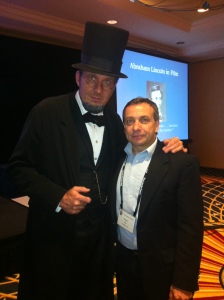
Abraham Lincoln (aka, George Buss) and the author
As luck would have it I was able to meet two Abraham Lincolns (my first presidential photo-op). George Buss, in full regalia, is an active member of the Lincoln Forum. Jim Getty (more on him in a moment) is one of the most revered Lincoln presenters in the country.

Harold Holzer at the lectern, watched by Frank Williams
The conference was a cornucopia of Lincoln scholars. I was able to meet such esteemed historians as Harold Holzer, Frank Williams, Edna Greene Medford, Catherine Clinton, William C. “Jack” Davis, Craig L. Symonds, and, just one week after seeing them in Washington at the Lincoln Group of DC symposium, Tom Horrocks and Jonathan W. White. If all that scholarship wasn’t enough, noted Civil War historian and Pulitzer Prize winner James McPherson was there with his new book on another Civil War President – Jefferson Davis.
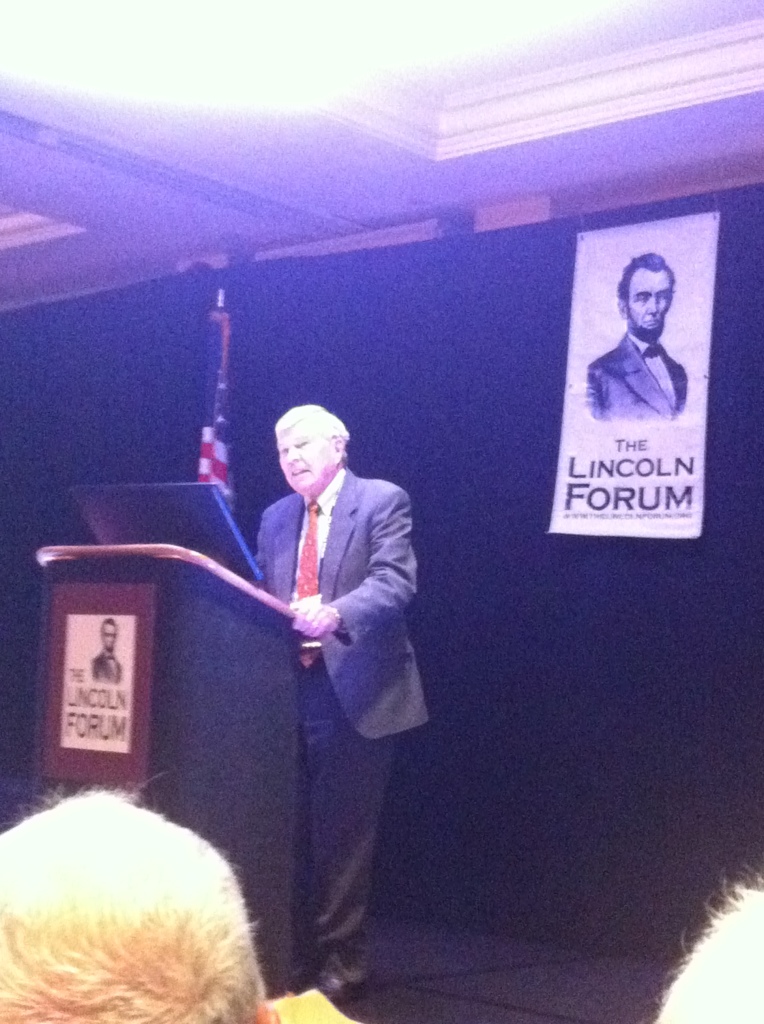
James McPherson
I also had the chance to speak with Daniel Weinberg, owner of the Abraham Lincoln Book Shop in Chicago, IL. A published author himself, Dan has been instrumental in bringing Lincoln book authors to the public, both through store sales and his Virtual Book Signing events. I also spoke several times with David Hirsch and Dan Van Haften, authors of “Abraham Lincoln and the Structure of Reason,” a book that delves into Lincoln’s use of Euclid geometry in his speeches. Given my own work in progress – a book on Lincoln’s “sciencey” side – I felt privileged at the opportunity to get their insights first hand.
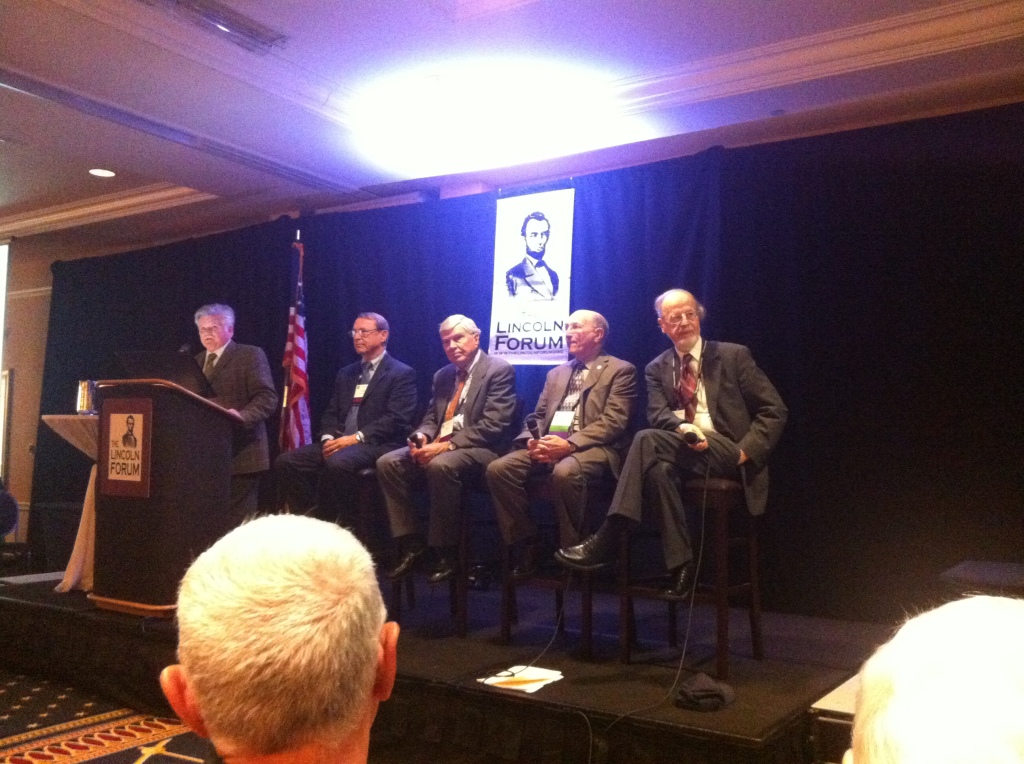
Panel with (l-r) Jack Davis, Craig Symonds, James McPherson, John Marszalek, Richard McMurry
Like most conferences, the annual Lincoln Forum symposium includes stellar speakers, stimulating panel discussions, and significant award presentations. Unlike some conferences, the camaraderie is palpable, as both old and new friends gleefully share their interest in one of our greatest presidents.
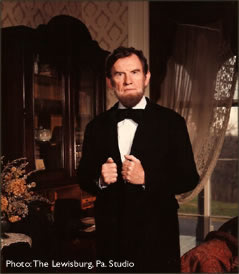
Jim Getty
And then there is Jim Getty. Each year the Lincoln Forum gives the Richard Nelson Current Achievement Award to someone who has contributed to “the spirit of Lincoln in both word and deed.” This year the recipient of the award was kept secret for only the second time, then given to an unsuspecting Jim Getty for his nearly 40-year career as a Lincoln presenter.
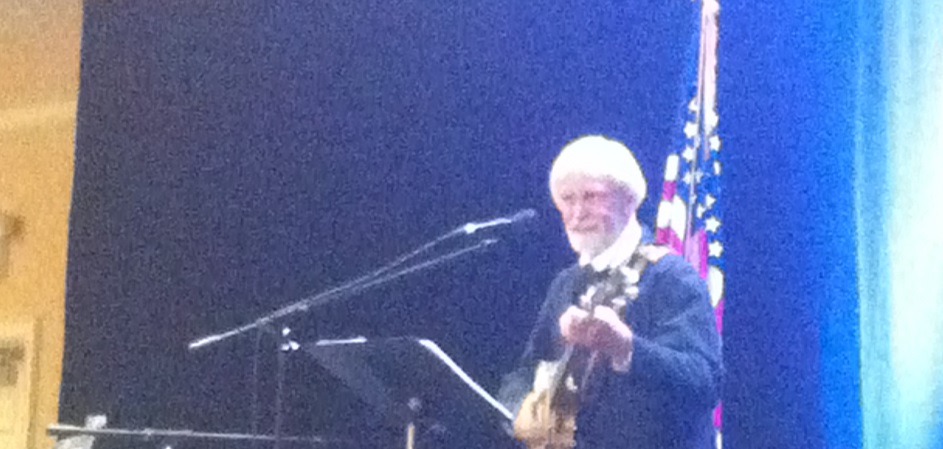
Bobby Horton
Finally, the conference closed with a performance by instrumentalist and singer Bobby Horton, known for his work with Ken Burns on the original PBS miniseries, The Civil War. The best part is that I will get to see Bobby Horton again soon as he provides musical enlightenment during the Lincoln Group of DC’s “2nd Inaugural Address” festivities in March 2015.
Click on these links to get information about joining the Lincoln Forum and the Lincoln Group of DC.
David J. Kent is a lifelong Lincolnophile and is currently working on a book about Abraham Lincoln’s interest in science and technology. He is also the author of Tesla: The Wizard of Electricity and an ebook Nikola Tesla: Renewable Energy Ahead of Its Time
Follow me by subscribing by email on the home page. And feel free to “Like” my Facebook author’s page and connect on LinkedIn. Share with your friends using the buttons below.



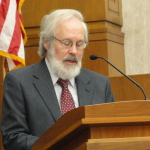
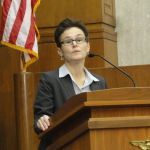 Elizabeth Varon, Professor of History at the University of Virginia, then provided some insights on the election from the South in her talk “Catastrophe or Setback? The Election of 1864 in Confederate Eyes.”
Elizabeth Varon, Professor of History at the University of Virginia, then provided some insights on the election from the South in her talk “Catastrophe or Setback? The Election of 1864 in Confederate Eyes.”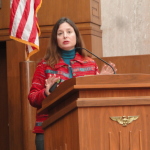 “The Summer of ’64” was a critical time period that significantly impacted the election, said University of Kansas Professor Jennifer Weber, author of Copperheads. Grant’s overland campaign had even die-hard Unionists war weary; Weber explored many reasons how military disasters turned into Union – and Lincoln’s – victories.
“The Summer of ’64” was a critical time period that significantly impacted the election, said University of Kansas Professor Jennifer Weber, author of Copperheads. Grant’s overland campaign had even die-hard Unionists war weary; Weber explored many reasons how military disasters turned into Union – and Lincoln’s – victories.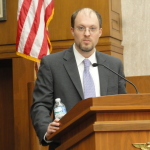 Speaking of the military, the soldier vote was crucial to Lincoln’s electoral victory in November. Christopher Newport University Professor and historian Jonathan W. White examined voting dynamics that possibly changed the outcome of the election in “Emancipation and the Soldier Vote of 1864.”
Speaking of the military, the soldier vote was crucial to Lincoln’s electoral victory in November. Christopher Newport University Professor and historian Jonathan W. White examined voting dynamics that possibly changed the outcome of the election in “Emancipation and the Soldier Vote of 1864.”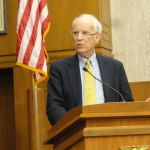 Following these great talks was our keynote speaker, noted historian Michael Burlingame, author and editor of numerous books on Abraham Lincoln. In a wide-ranging talk, Burlingame brought us into the opposition Lincoln faced in reelection, including many in his own party. His “Radicals, Abolitionists, and Lincoln’s Reelection” explored the fickleness not just of the public, but of the lawmakers and generals who worked for and against Lincoln.
Following these great talks was our keynote speaker, noted historian Michael Burlingame, author and editor of numerous books on Abraham Lincoln. In a wide-ranging talk, Burlingame brought us into the opposition Lincoln faced in reelection, including many in his own party. His “Radicals, Abolitionists, and Lincoln’s Reelection” explored the fickleness not just of the public, but of the lawmakers and generals who worked for and against Lincoln.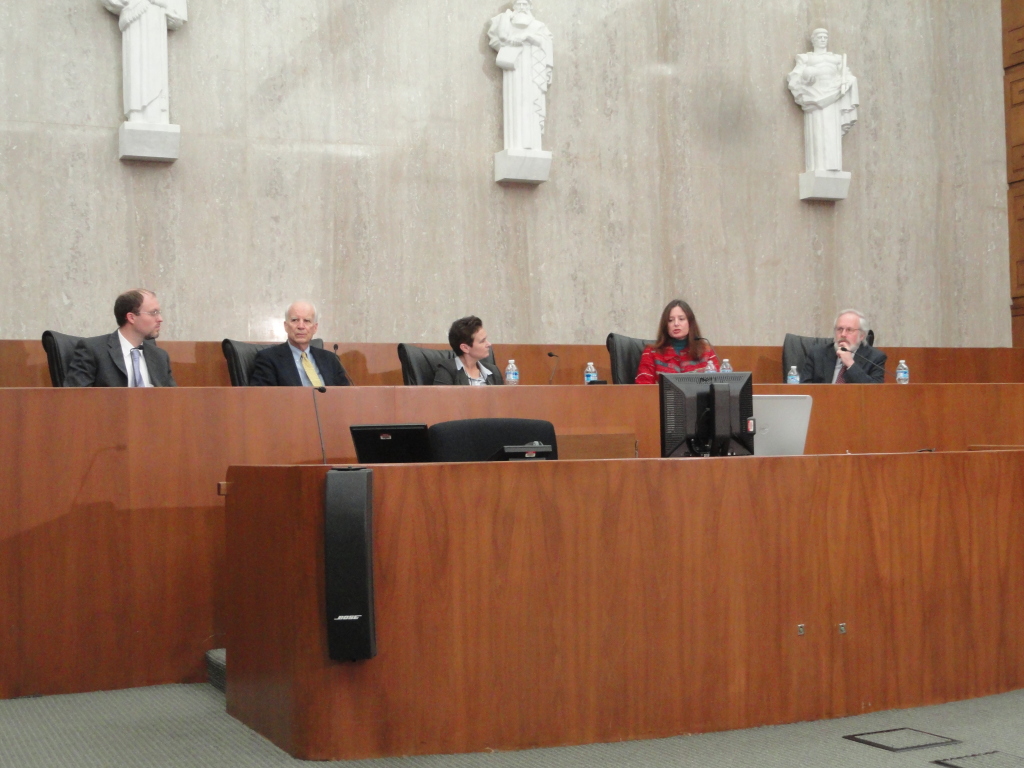
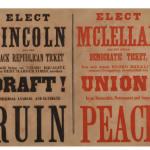 Abraham Lincoln was reelected for a second term in 1864, which surprised everyone,
Abraham Lincoln was reelected for a second term in 1864, which surprised everyone, 
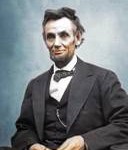 As the Civil War raged on, things weren’t looking so good for the reelection of Abraham Lincoln. In August 1864 Lincoln asked his entire cabinet to sign the back of what became the “
As the Civil War raged on, things weren’t looking so good for the reelection of Abraham Lincoln. In August 1864 Lincoln asked his entire cabinet to sign the back of what became the “
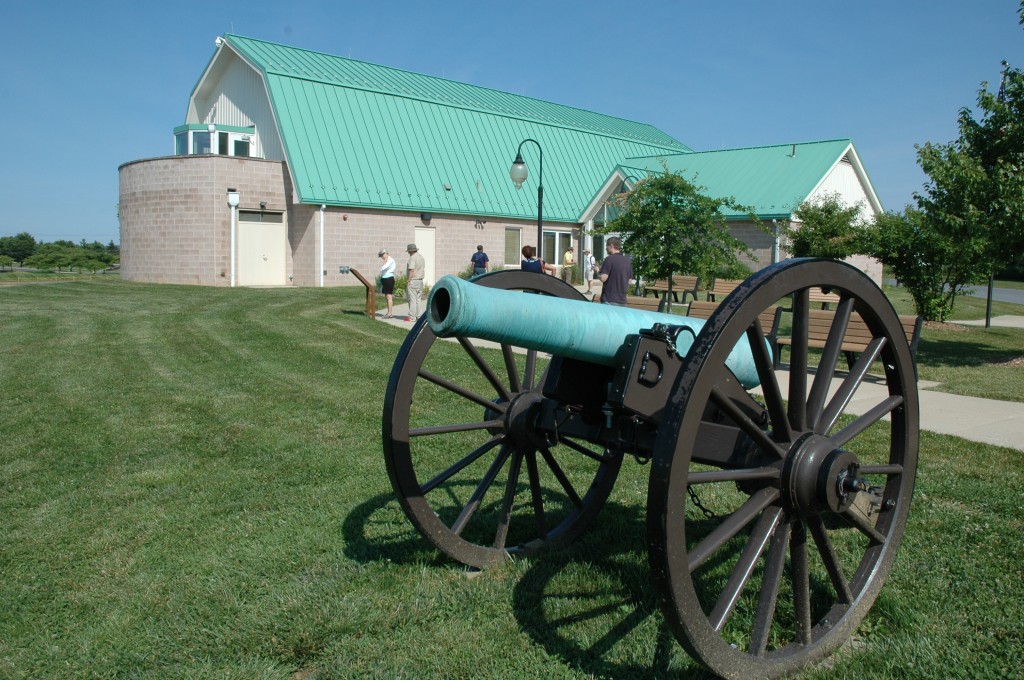
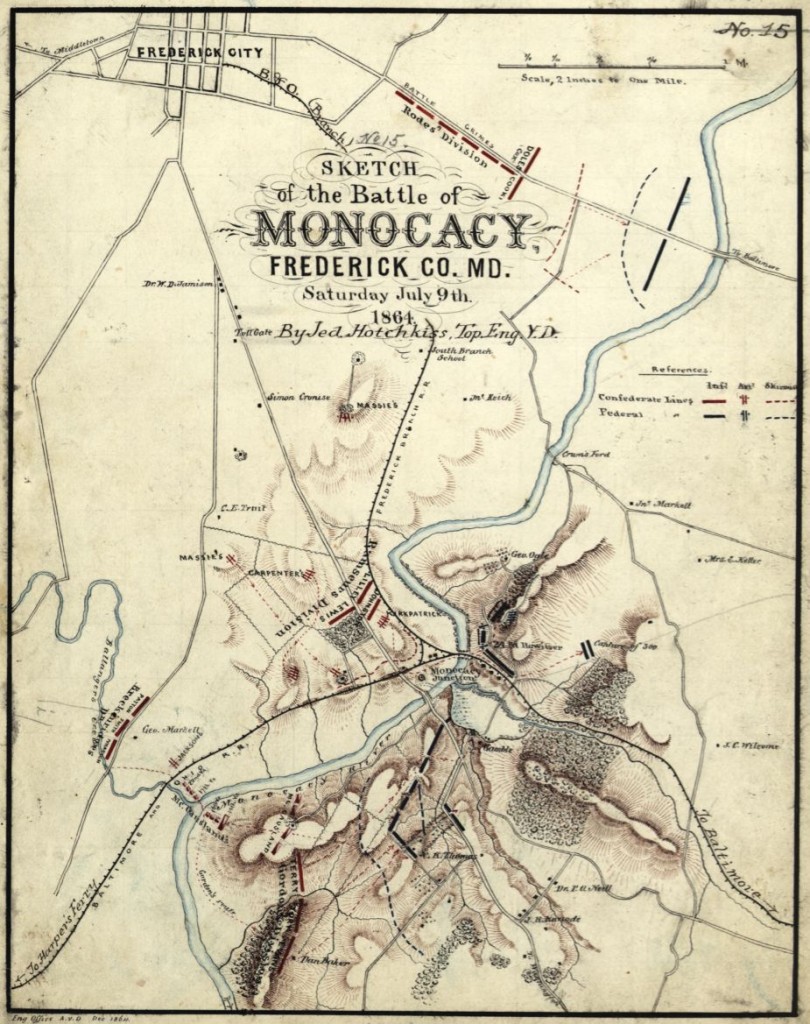

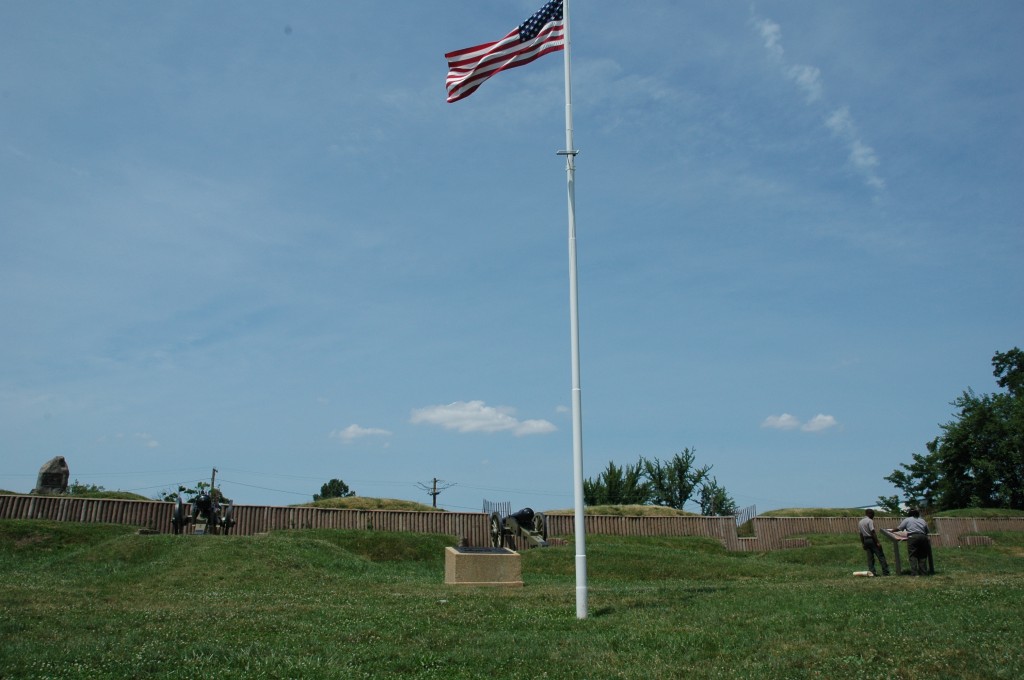 After a delightful open-air lunch at the Urbana Park, we were on to Fort Stevens. Located inside the District line from Silver Spring, Maryland (and not far from the modern day horror of the “DC sniper”), Fort Stevens is a series of low dirt mounds lined with Union cannon. Here was not only the repelling of Early’s forces but the site of one of Abraham Lincoln’s most famous incidents.
After a delightful open-air lunch at the Urbana Park, we were on to Fort Stevens. Located inside the District line from Silver Spring, Maryland (and not far from the modern day horror of the “DC sniper”), Fort Stevens is a series of low dirt mounds lined with Union cannon. Here was not only the repelling of Early’s forces but the site of one of Abraham Lincoln’s most famous incidents.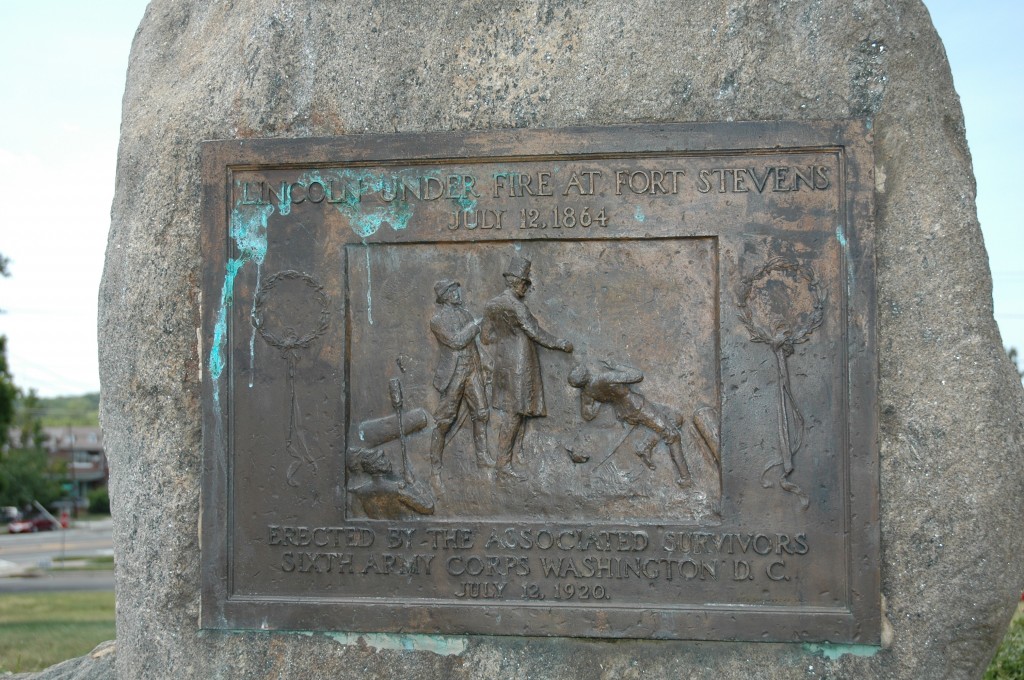 Living not far away at the Soldier’s Home, Lincoln had decided to see the action first hand. Ignoring the risk, Lincoln stood his 6-foot, 4-inch frame (plus tall top hat) on top of the mound to get a view. A medical officer standing beside him was hit with a bullet, after which the infamous (and possibly apocryphal) line was blurted out: “Get down you fool.” Whether it was this or a more respectful imploring for the President to get out of the line of fire we will likely never know, but thankfully he did get down and was unharmed.
Living not far away at the Soldier’s Home, Lincoln had decided to see the action first hand. Ignoring the risk, Lincoln stood his 6-foot, 4-inch frame (plus tall top hat) on top of the mound to get a view. A medical officer standing beside him was hit with a bullet, after which the infamous (and possibly apocryphal) line was blurted out: “Get down you fool.” Whether it was this or a more respectful imploring for the President to get out of the line of fire we will likely never know, but thankfully he did get down and was unharmed.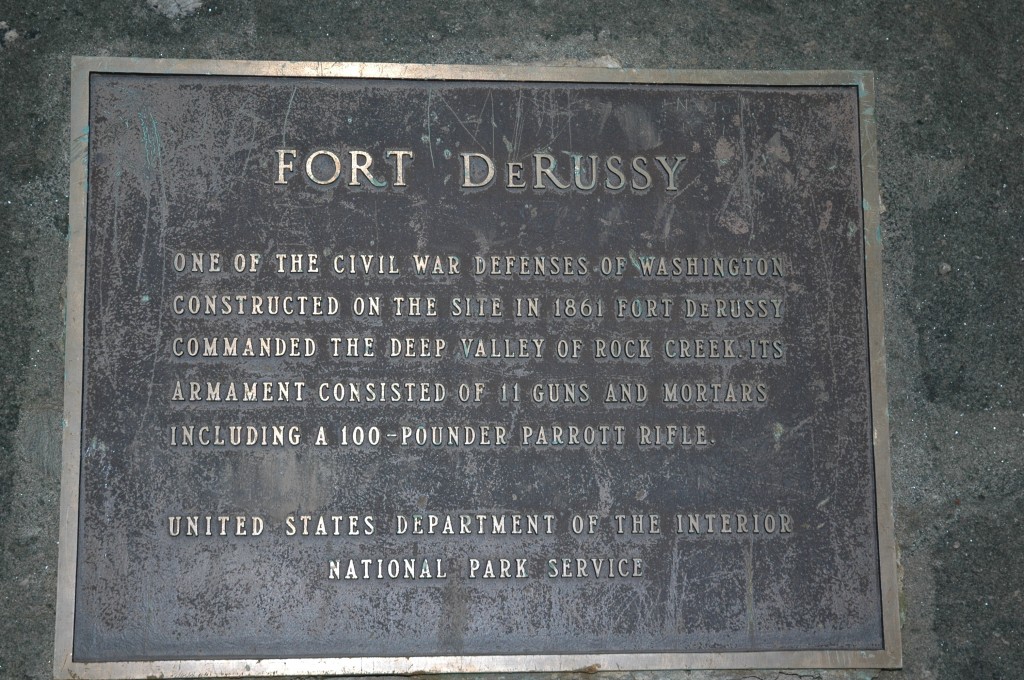 Our last stop was at Fort DeRussy, another of the small forts that served as a perimeter around Washington DC during the war. Earthenwork like Fort Stevens, DeRussy also boasted a “100-pounder,” a rifled Parrott cannon that could fire accurately for up to 4 miles.Many thanks to Craig Howell for being such a fantastic and knowledgeable tour guide, to Beltway Transportation for the comfortable bus and daring driver, and to Karen Needles, Susan Dennis, and everyone else in the Lincoln Group who arranged the tour. As the saying goes, a great time was had by all.
Our last stop was at Fort DeRussy, another of the small forts that served as a perimeter around Washington DC during the war. Earthenwork like Fort Stevens, DeRussy also boasted a “100-pounder,” a rifled Parrott cannon that could fire accurately for up to 4 miles.Many thanks to Craig Howell for being such a fantastic and knowledgeable tour guide, to Beltway Transportation for the comfortable bus and daring driver, and to Karen Needles, Susan Dennis, and everyone else in the Lincoln Group who arranged the tour. As the saying goes, a great time was had by all.






